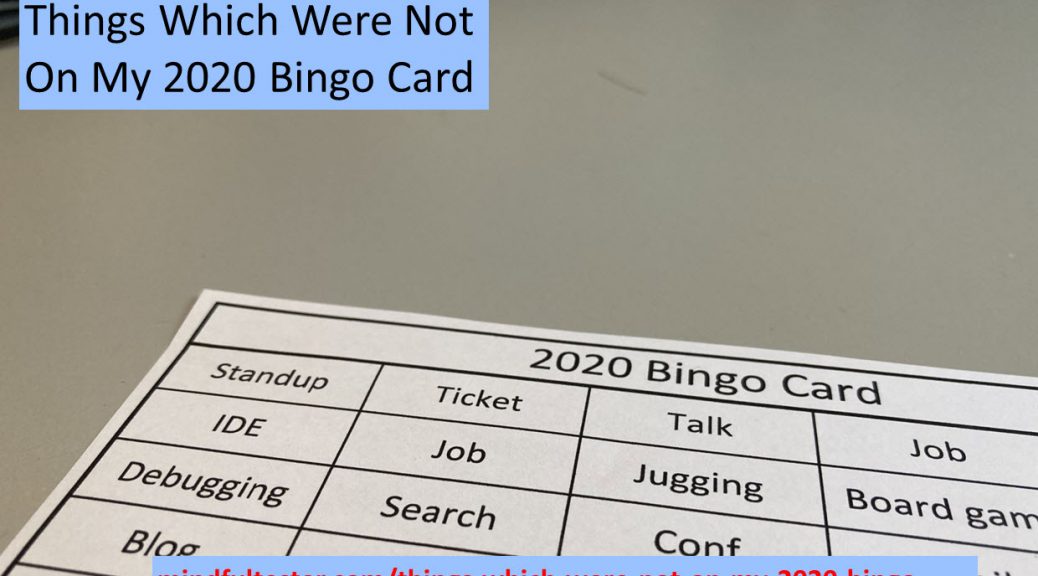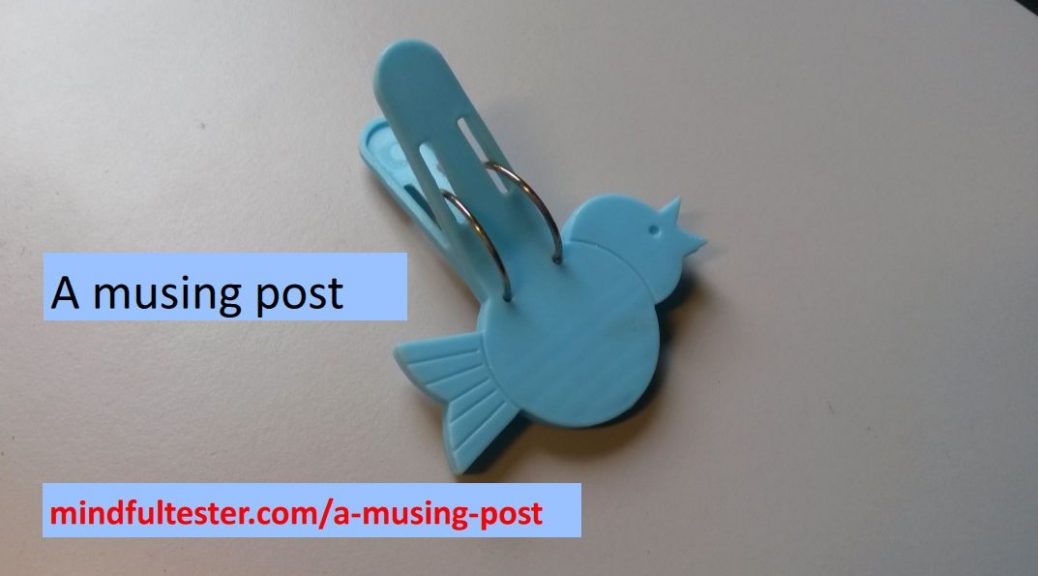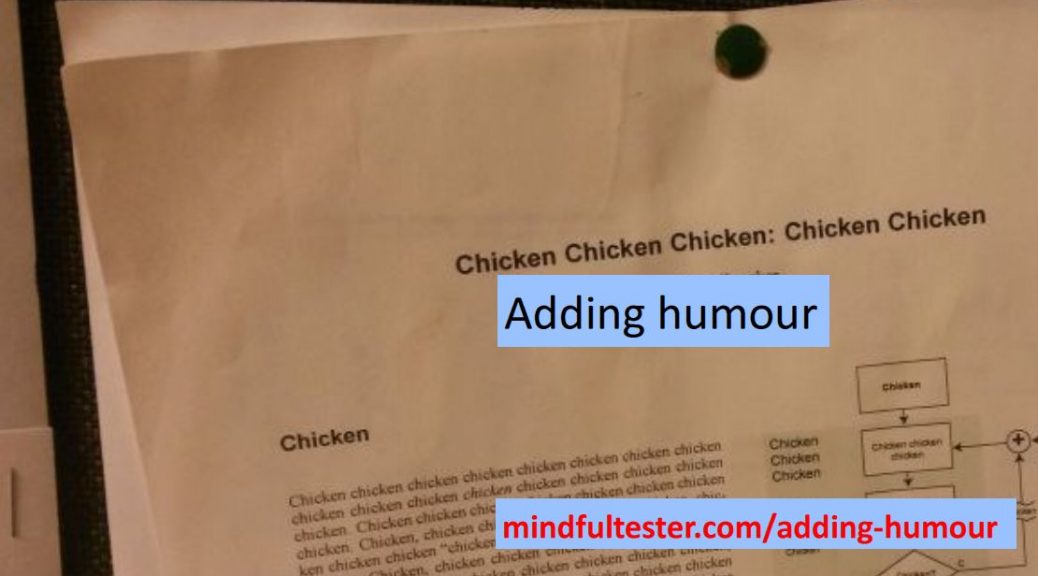Expect the unexpected
In a white room I was asking questions. After each answer I posed a new question. Then I asked something and the whole joke collapsed. Nobody noticed, but I had taken a wrong turn. I felt bad.
The white walls vanished. I realised that I was having lunch at the kitchen table. One of my kids looked curiously at me. My wife had a concerned look: “Is everything Okay? You were shaking your head.”
“I was just thinking.”
A century earlier I was making a presentation. One of the must do’s of a graduation is a talk. And I really disliked the formal nature of the talk. Why could I not add some jokes?
After my graduation talk a female student said with a smile: “This was not what I had expected.”
Years later during a company meeting I showed the last slide with Edutainment in the footnote. It contained the name of a founder of the company. A saleswoman started to laugh out loud.
After the lecture the smiling Practice Lead gave me a high five. Somehow I had the right mix of statistics, testing, and jokes.
On the European Juggling Convention in Rotterdam I met a street artist. He was a small ugly man and had the look of Catweazle. It was hard for him to earn his money.
When he did not have enough money, he told, that he would stay in their village. And marry one of their daughters. “Then they would give me enough money for the bus.”
Practice makes people smile
My standard procedure for adding jokes is to do this in the last weeks before the presentation. This time I started months in advance.
For my slides I needed pictures. After taking the picture I asked one of my kids to have a look at my workshop slides. “This is the place where I will put the picture.” Then I took the time to explain the English joke in Dutch. I saw a big smile.
Weeks earlier I showed my slides of my workshop at TestBash Netherlands to a friend with no IT background. He smiled faintly.
IoJ internet of Jokes
This Fieldstone is not particularly focused on making jokes for my own presentation. It is only about the process of joking.
March this year on my way home I saw a tweet of Bart Knaack: “Test”. Some other testers reacted and he replied that he was using IFTTT. ‘If This Then That’ can be used to automate steps.
Wait a minute. He was preparing for a presentation of a test conference I would attend. It was about IoT or Internet of Things.
In my mind I visualised his presentation platform. So the tweets to him would be processed by IFTTT. This on line service would trigger an IoT device which in turn would perform a useful action for Bart.
If I tweeted him during his preparation, then I surely would draw his attention. I would tweet an explanation for IoT. I thought about the Rule of Three. Make that three explanations.
In the train I noted them in a mind map program. Why not three tweets? I continued to combine the strangest English words I read or heard while using different interpretations of I and o.
After crafting 3 tweets I just went on. This was fun. Then it was time for a tweet storm.
“IoT
Internet of Thieves?
Ignore other Things?
Imagination or Truth?
: ) “
“IoT
Insalata on Top?
Interesting or Threatening?
One Zero Two?
: )“
“IoT
I offer Tests?
Intelligent office Trolls?
Instant overall Talk?
: )“
“IoT
Immense ogre Tokens?
Increase ostrich Traffic?
Imploding oblivious Tension?
: )“
“IoT
Incoming orange Truckers?
Instill or Tranquilize?
Integrate old Thoughts?
: )“
A short explaining answer of Bart followed: “Internet of Things”.
I was in turbo joking mode and tweeted back:
“In other Thoughts
– One option Though –
Internet of Things
Ten Thanks“
Fun achieved.
It’s a Kinda Magic
During the stand up my boss had some doubts about my actions.
“I dropped it hard.” I stressed it.
“Hopefully it was not broken.” My scrum master remarked.
“If it is broken, then I just need some glue to fix it.” I replied.
During my testing career I had noticed that programmers had their own kind of humour. It is a wonderful way to make contact.
Let me sketch the context of another situation. In one book a favourite main character had to board a train on Platform 9 3/4. He had some difficulties to find it. This is completely understandable for muggles and No-Majs.
One morning I showed my smartphone to a dev:
“This picture I took at Utrecht Central Station”: Platform 9 3/4. He started to smile.
How about this?
At a Spring Event of TestNet, the Dutch Special Interest Group in Software Testing, I had one of the last talks of the day.
I advised them to put you at the end of the schedule, because “Han Toan can tell in an engaging way.”
I had just started my talk about a performance test.
“This year they finished the renovation of Rotterdam Central Station. In the hall you can see this light.” A picture of the light with lots of bulbs and poles was shown on slide 6.
“My wife really liked this light. I did not consider to give it to her on Mother’s Day.” [a few days earlier]
“The lights are blinking.” while opening and closing my hands continuously at shoulder level.
“If I would place this light in my house, I could not walk straight up in my living room and my kitchen.” I lowered my head in an uncomfortable position. Smiles appeared.
“This light is to indicate the meeting point.”
“Ze noemen de lamp De Wolk. In het Engels The Cloud.”
[They call the light The Cloud. In English The Cloud.]
“For the performance test we used the cloud.”
Now I had the full attention of the audience.


